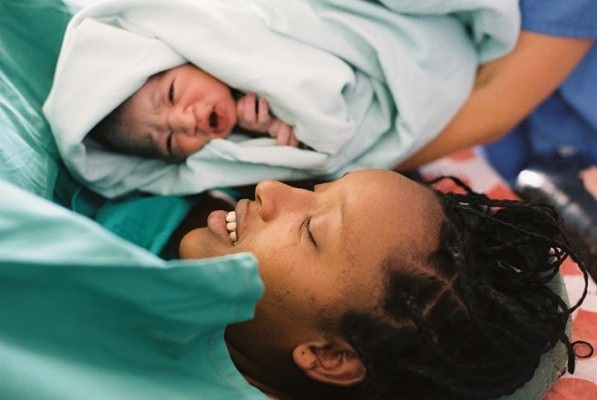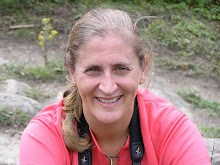February 2nd
So I am into my second month in Ethiopia (both in calendar terms and also this is day 29 of my trip). There are so many things to write about that it is always difficult to know where to start but I have decided that today I will write about the wards.
The wards are strictly single sex (well this is as far as patients go) which considering there are no curtains between the beds in the ward at all it would seem just as well. The men's ward is on one floor and the women's ward (where the women I look after are cared for is on the floor below next to the four bedded labour and delivery area). There are officially 29 beds but extra beds often supplement this number as the solution to capacity issues is very simple - they just bring more beds into the ward (if only addressing capacity were so simple in the UK!). The beds are very close together with barely enough space to get along side them to examine the patient especially at the times when extra beds have been brought in. The ward takes maternity, gynaecology, surgical and medical patients. This is an issue as the medical women may be having treatment for TB or other infectious diseases, which is a significant risk for a newborn baby. There are three bays and the nurses are strict about ensuring that the majority of mothers and babies are in the first bay and the majority of medical women are in the third bay with the second bay being the first place for surgical and gynaecology women, this creates some barrier but of course women and babies do go into bay 2 when it is busy.
The ward is full already but then visitors swell the numbers. further These people are entirely necessary as they provide care for their sick relative in helping them mobilise to the toilet, washing and feeding (the nurses do not expect to or have time to provide this sort of care and there are no Physios or OTs here). The relatives also go to the market and purchase food for the women (a very rudimentary ration is provided twice a day by the hospital which makes NHS portions look positively generous) and will also go to pharmacy to purchase drugs & IV fluids that are prescribed (if they are not a maternity patient with a voucher). The other issue for visitors is that home may be many hours away and although there are hotels in town the chances that they can afford a hotel and the hospital charges for their relative are slim. Thus the relatives are present all day and all night. Going to the ward after 10pm is a source of amusement to me as there will be at least two people but often three people in every bed with additional people sleeping on the floor and on the benches in the communal areas outside the ward. I should point out that there are no cots for babies and these sleep in bed with the mother as well as the other relatives. Fortunately as previously described Ethiopian people are lean or otherwise there might be more issues related to these sleeping arrangements (sadly we did have a healthy baby die in the night 2-weeks ago as the mother accidentally rolled on to it in her sleep).
There is a clean sheet and blanket provided for each bed on admission by the hospital (well most of the time-unfortunately there are significant issues of linen going "missing" in the laundry so that it is not uncommon to run out.) Due to the fact that these are donated from a variety of sources I am not sure I have ever seen two sheets or blankets the same yet (or a sheet without holes). Add to this the fact that all the beds are different (many over 20years old but still with working back rests and raising mechanisms- they don't make them like that any more) and it does mean that the ward have that slightly disorganised appearance reminiscent of the pretend- hospitals I used to create as a child, when the beds & covers for my doll patients were whatever I could get hold of.
The biggest issue on the ward that I still find difficult to deal with on a day-day basis is the lack of privacy for the women. At ward round times all the visitors are banished from the ward (and they obey unquestioningly) and the doors are locked but at any of the windows there will be a crowd of faces peering in. There are curtains but these are rudimentary and certainly do not stop every prying eye. On the ward round "intimate" examinations (I will leave to your imaginations as you know I look after obstetric and gynaecology patients) may be undertaken which the women seem to accept as entirely normal without any concern for who is watching. These sort of procedures also occur outside the ward rounds when the ward may be full of visitors and no one seems to think it inappropriate to carry on. The nurses have got used to the fact that other than in an emergency I will take the woman into one of the obstetric observation beds to be examined where there will be a maximum of one other woman (and no visitors) present during the procedure, however they clearly consider it rather eccentric and unnecessary.
I realise this lack of privacy and dignity all poses an ethical question about my being complicit in perpetuating this behaviour but given the ward environment there doesn't seem to be any option other than to go along with it . There is no doubt the women consent to be examined in this way never showing any hesitation but I suspect that they feel like me that there is no option that to go along with it and unlike me they do not know that anything else is possible.


Hi Leonie,
ReplyDeleteI just thought I would become a follower and let you know how much I enjoy reading your blog. Keep it up!
Looking forward to a GNO on your return.
Sarah
Hi Leonie, Nicola let me have the url to follow your blog. We've just got back from an amazing 2 weeks sailing in the British Virgin Islands and so the discomforts you're experiencing are in stark contrast to the wonderful life of luxury we have been enjoying. It's great to get back and catch up with your blog. You have a naturally relaxed and clear style in your writing and it is fantastic that you are able to share what would otherwise be a hidden diary of your trip.
ReplyDeleteIt makes one stop for a moment to realise how much we all take for granted in our comfortable western lives.
I take my hat off you for your courage in going away for a long time alone and exposing yourself to medical challenges that you'd never face here. Thanks you for being thought provoking, especially the blogs on the young woman with the hydrocephalic baby and the discussion on privacy. It reminds me of my elective in Nairobi in 1982 where the solution to overcrowding in what was the country;s top teaching hospital was to put 2 or even 3 patients in each bed.
As Sarah says, keep it up, we are enjoying hearing what you're up to. Looking forward to hearing more and seeing some pictures when you get back.
Also thanks to Mark for his support/advice to Sophie who's been offered an internship at Deloitte.
Lots of love Mark n Nicola.xx